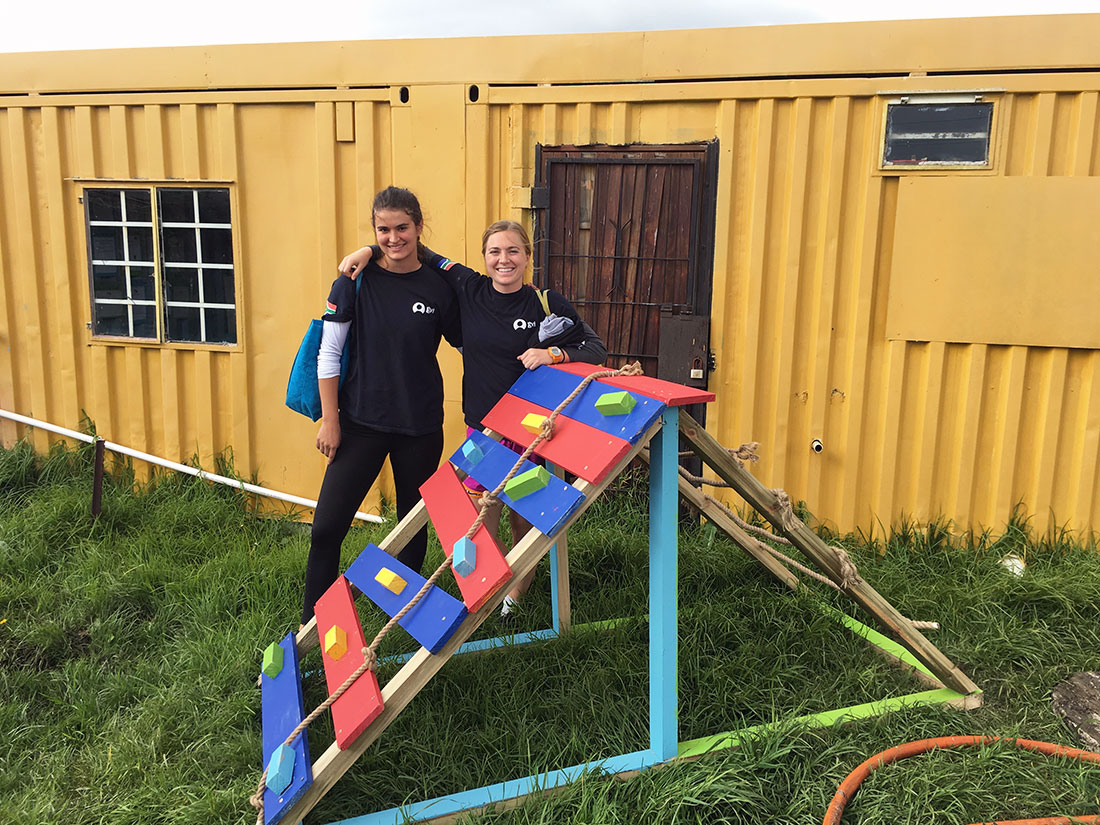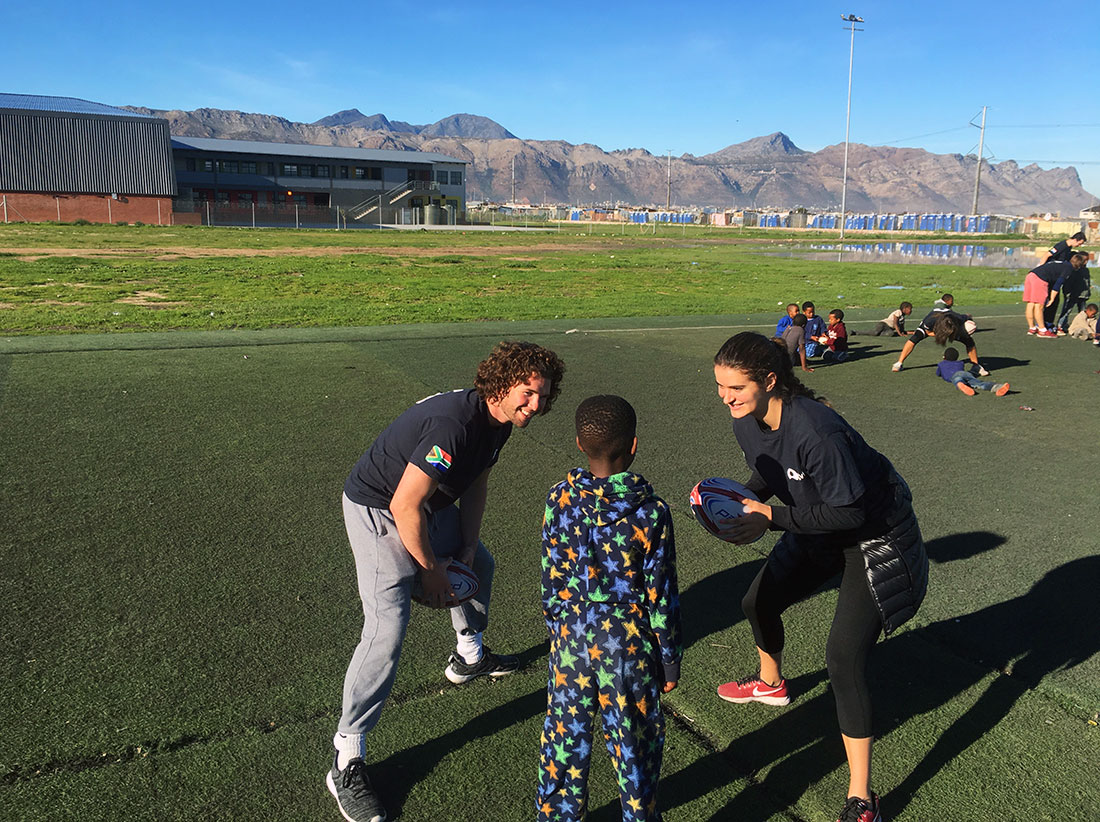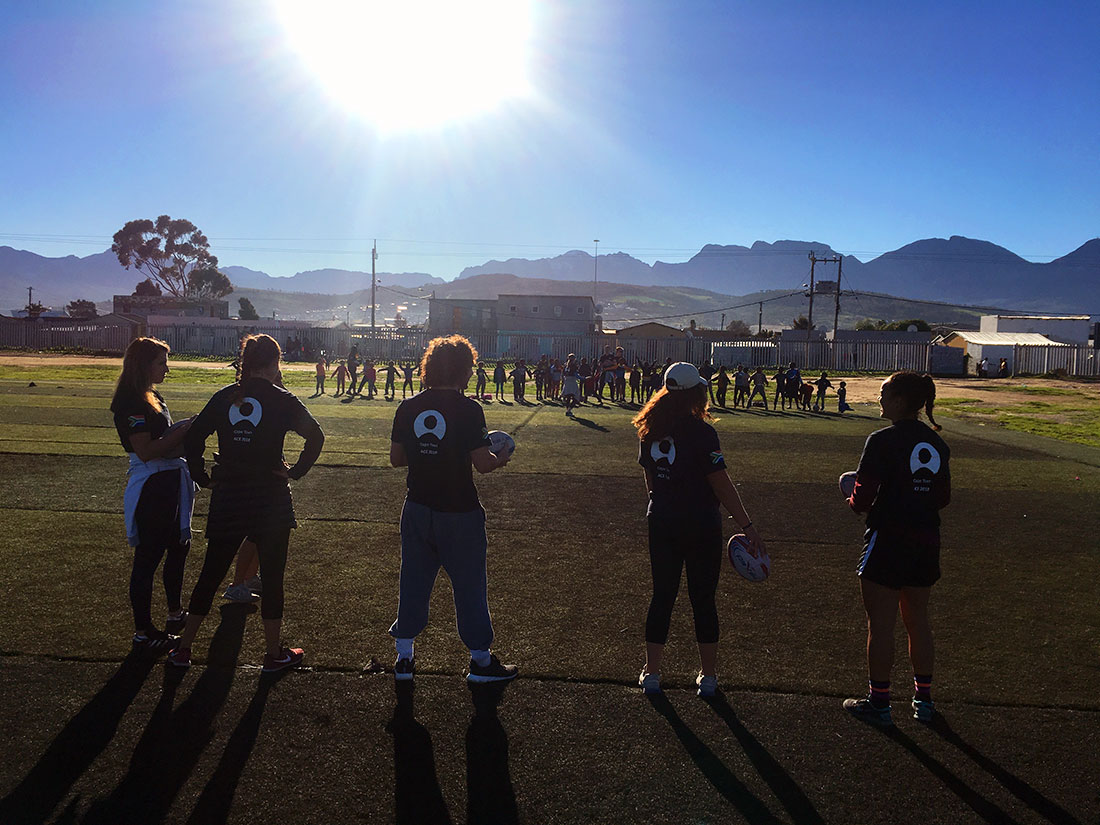ACE in South Africa 2018
“Goodbyes have never been hard for me before…It then dawned on me as I wrote my last journal entry that I was leaving behind a place and people that had so quickly come to mean so much to me… I sat peering out the window of the plane, remembering all that I had learned and loved, and immediately felt the need to rush out of my seat and take the first cab back! I wanted this three-week experience to go on forever.” – Callie Humphrey, Duke Women’s Lacrosse
Callie Humphrey shared in her final blog post that goodbyes are usually easy for her, but something felt different when she reached the end of her three-week immersive service experience in South Africa this past summer. There was something about her three weeks in the informal community of Nomzamo Township near Gordon’s Bay that she didn’t want to leave. Alongside nine other Duke and Stanford student-athletes, Humphrey spent two of those three weeks leading a student holiday sports and education camp at ACJ Phakade Primary School. In addition to planning and leading the camp, Humphrey and her fellow ACE student-athletes also taught women in the community basic computer skills as part of on-going women’s empowerment initiative and designed and constructed playground equipment that provided daily play access for ninety children at a local crèche (a school for young children).

Part of what makes any experience memorable is its challenges and unexpected changes. On some days, the student-athletes arrived at camp ready to use the classroom lesson plans they had carefully prepared only to find that the school’s building was locked. Flexibility became the challenge for the ACE in South Africa participants when they had to re-think their lesson plans on the spot and pivot to using just the outside field instead to run the camp that day. Aleeza Yu, Stanford Women’s Gymnastics, explained in a blog post that the ACJ students’ own sense of determination and perseverance motivated the ACE cohort to work together and improvise. She wrote, “If the students did something wrong, they would ask to try again. If they didn’t understand something because of the language barrier, they would ask an older kid to translate for them so they could do the drill correctly. It was amazing to see the teamwork between the children, as well as with all the teachers.”
“Through this experience, I learned to embrace every moment and never take any opportunity to learn for granted. Our group of student-athletes could have taken the locked school as a constant set back offering no opportunity for resilience. But instead, like the children…we took the opportunity to learn and adapted to the ever-changing situation with vigor and excitement.” – Amelia Smith, Stanford Beach Volleyball

Amelia Smith, Stanford Beach Volleyball, agreed with Yu and explained that the locked school doors actually fostered stronger bonds between the Duke and Stanford student-athletes. She wrote, “Through this experience, I learned to embrace every moment and never take any opportunity to learn for granted. Our group of student-athletes could have taken the locked school as a constant set back offering no opportunity for resilience. But instead, like the children…we took the opportunity to learn and adapted to the ever-changing situation with vigor and excitement.”
In addition to receiving support from the school children and each other, the ACE in South Africa student-athletes were also spurred on by the example of their GVI staff leaders. Anja Zehfuss, Stanford Women’s Rowing, wrote that working with these leaders “has been easy and enjoyable. They challenge us to do our best, but also are fun.”

The relationships and combined tenacity of the student-athletes, schoolchildren, and GVI staff ultimately paid off, with the holiday camp participation increasing from previous years to a total of 70 students on most days. Moments like these made it difficult for student-athletes like Callie to say goodbye. However, Max Feldman, Duke Men’s Soccer reflected on his plan to make these moments last. He wrote, “Cherish your moment but bring that moment back to Duke or Stanford and make it last. Talk about it whenever you can and keep hanging onto it and bring in others to experience some of your moment.” So while Callie and the nine other ACE student-athletes couldn’t stay in South Africa forever, they can let these moments and memories transform them back on campus.
